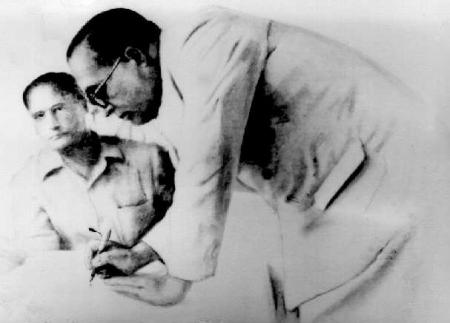
“A just society is that society in which ascending sense of reverence and descending sense of contempt is dissolved into the creation of a compassionate society.”
― B.R. Ambedkar, Annihilation of Caste
On April 14, 2024, India commemorated the birth of B.R. Ambedkar, a Dalit jurist who was pivotal in drafting the Indian constitution. His personal experiences, shaped by his Dalit background, were instrumental in shaping a liberal constitution for a nation characterized by stark social disparities. His life and work testify to the power of lived experiences in driving systemic change. Decolonisation, a term first coined by the German economist Moritz Julius Bonn, was initially used to describe the political liberation of colonies. Today, it is applied to interrogate the post-colonial impacts on intellectual thought, scientific endeavours, economic and political systems, and social and cultural hegemony. Influential works such as Frantz Fanon’s The Wretched of the Earth have significantly contributed to this discourse on the binary contradictions between the colonised and non-colonised.
Reflecting on my journey as a woman researcher from a non-privileged backward caste background, I grapple with the complexities of navigating insider-outsider dynamics in my fieldwork. Seventeen years ago, during my PhD research on women living with HIV/AIDS and social policy, I confronted profound experiences of gender-based violence, sexual exploitation, excruciating care work, and extreme poverty among my participants in India. Despite my relative privilege as a white-collared middle-class woman, I recognised our shared struggles against societal injustices. These women’s resilience and willingness to engage with my research despite their hardships challenged my preconceived notions and prompted introspection on my positionality within the research process. I have been involved in reflective politics in my book, failing to make an impact on the lives of women with HIV/AIDS. As a woman in a developing country, I lacked the networks and means to effect substantial change.
I have been critical of the South Asian anthropologists and social scientists working on marginalisation and have witnessed some unethical practices closely. For instance, Saiba Verma’s “Occupied Clinics” has been criticised for not disclosing her father’s role as an RAW officer. She has acknowledged, “As an upper-caste and upper-class Indian citizen and subject, I have actively and passively internalised anti-Muslim racism my entire life. I am complicit in the colonization of Kashmir and other regions forcibly incorporated into the Indian nation-state.” In the context of his newly published book, Brown Saviors and their Others, Arjun Shankar acknowledged his male Tamil Brahmin privilege in his field locations. Deepa Pawar, representing first-generation Nomadic Tribes (aboriginals), provides first-hand accounts of reproductive child health and other issues of her people, an example of paradigm shifts in social sciences.
In my everyday life, I traverse contradictions between insider and outsider status; I have engaged with self-reflexivity in my location and recognize myself as someone who faces gender and caste-based discrimination daily. The reclamation process of intellectual space implies that the powerful elites should also be willing to relinquish their hold on it. Lived experiences are central to decolonisation; who tells the story is equally important. Living with oppression each day is different from theorising or objectifying it. In social sciences, the binaries of subject and object are blurred. It matters who tells the story; can someone’s pain be objectified? We should move towards authenticity in social sciences. The politics of representation demands that we acknowledge the intuitive knowledge that emerges from firsthand experiences of oppression. Perpetrators of oppression have been complicit in undermining social justice, including the appropriation of intuitive knowledge. Offering a symbolic apology does not absolve us of our responsibilities.
Understanding these contradictions and valuing individuals’ lived experiences within this context is crucial for a more nuanced and empathetic approach to decolonization. Listening to and learning from diverse voices is essential as we grapple with colonial legacies, particularly in India, where sexism, casteism, and ethnic conflicts intertwine with colonialism. Thus, asking difficult questions about elites’ positionality within historical power hierarchies is necessary. Decolonization cannot be simplified into binaries like white versus non-white or west versus non-west. It entails engaging with India’s deep-rooted legacy of casteism, or communalism, predating Western colonialism. The academic and policy sectors in the West and beyond must prioritize the inclusion of caste as a fundamental aspect of decolonization accountability from their colleagues and counterparts who hail from a caste and race-based society. Decolonization is happening right in our backyard, which implies that we are deeply engaged in our actions towards a compassionate society.
Acknowledgement: I would like to mention the inspiring woman P. Kausalya, who started the Positive Women Network and supported my PhD research. Also, Lila (Sax) Sax dos Santos Gomes and Kristof Decoster, thank you for helping me articulate my thoughts.